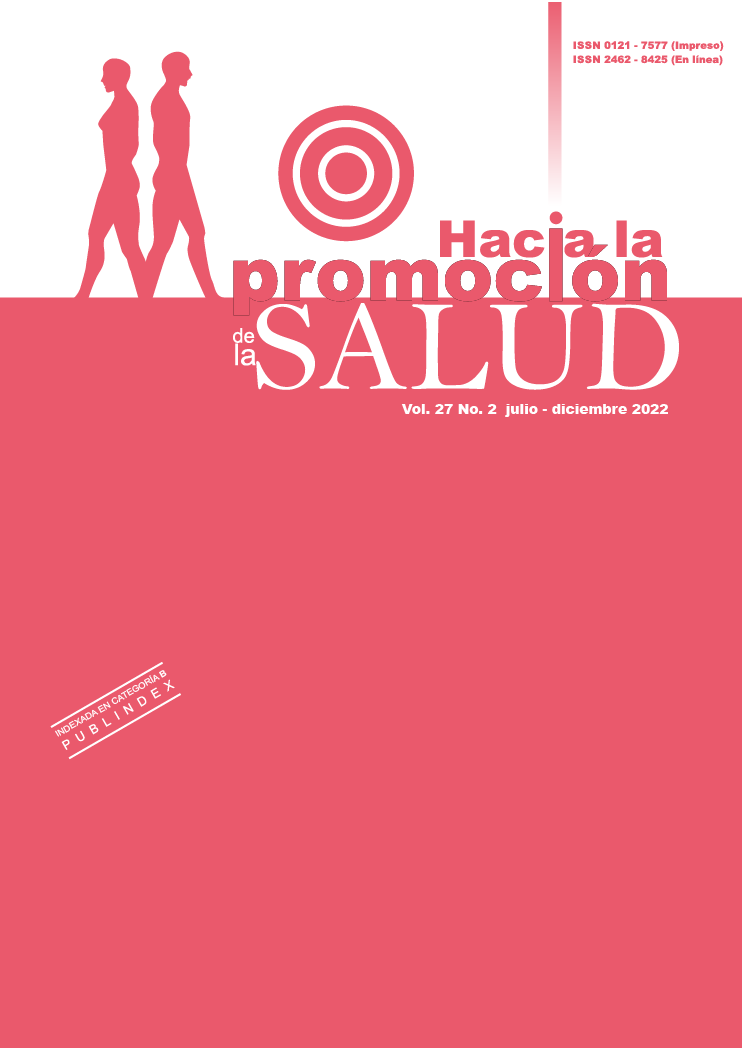Authors
Abstract
Objective: to measure the acceptability of a virtual course on palliative care and the impact on knowledge about palliative care, comfort and level of thanatophobia in nursing students. Methodology: a mixed methods design was used in which 39 participating nursing students from a public university were included. For quantitative information, the Palliative Care Quiz for Nursing scales, the Comfort in palliative care and the Thanatophobia scale were applied before and after taking the virtual course. For qualitative information, five focus groups were held, three before starting the course and two after finishing it. Results: It was found that the course significantly increased the level of knowledge in palliative care (p = 0.000), comfort in palliative care (p = 0.000) and decreased levels of thanatophobia (p = 0.005). In addition, four themes were identified that complemented the quantitative results: (a) Understanding and connecting with ICTs: opportunities and limitations; (b) experience the virtual learning teaching process; (c) Perceptions about palliative care; and (d) confrontation at the end of life: person, family and nurse. Conclusions: this course was accepted by the students and proved to increase knowledge about palliative care and comfort, in addition to contributing to reduce thanatophobia in the participants. The results show that strategies such as virtual courses, with innovative platforms and tools, can fill the existing gaps in the curricula regarding training in palliative care in Colombia.
References
Fondo Colombiano de Enfermedades de Alto. Cuenta de Alto Costo [Internet]; 2020 [consultado 11 de abril de 2020]. Disponible en: https://bit.ly/3zssCdk
Pastrana T, De Lima L, Pons JJ CC. Atlas de Cuidados Paliativos de Latinoamérica. Houston; 2013.
Arias-Casais N, Garralda E, Rhee J, Lima L, Pons-Izquierdo J, Clark D, et al. EAPC atlas of palliative care in Europe 2019. EAPC Press. Vilvoorde; 2019.
Centeno C, Sitte T, de Lima L, Alsirafy S, Bruera E, Callaway M et al. Documento de Posición Oficial sobre la Promoción Global de Cuidados Paliativos: Recomendaciones del Grupo Internacional Asesor PAL-LIFE de la Academia Pontificia de la Vida, Ciudad del Vaticano. J Palliat Med. 2018; 21(10):1398-1407.
Gryschek G, Cecilio-Fernandes D, Moreira De Barros GA, Mason S, Antonio De Carvalho-Filho M. Examining the effect of non-specialised clinical rotations upon medical students’ Thanatophobia and Self-efficacy in Palliative Care: a prospective observational study in two medical schools. BMJ Open. 2020; 10(11):e041144.
Tertemiz OF, Tüylüoğlu E. Are signs of burnout and stress in palliative care workers different from other clinic workers? Agri. 2020; 32(2):79-84.
Sansó N, Galiana L, Oliver A, Pascual A, Sinclair S BE. Palliative care professionals’ inner life: exploring the relationships among awareness, self-care, and compassion satisfaction and fatigue, burnout, and coping with death. J Pain Symptom Manag. 2015; 50(2):200-207.
Arias-Rojas M, Carreño-Moreno S, Rojas-Reyes J. Uncertainty towards the disease of family caregivers of patients in palliative care: A scoping review. Aquichan. 2020; 20(3):1-13.
Ferrell B, Malloy P, Mazanec P, Virani R. CARES: AACN’s New Competencies and recommendations for educating undergraduate nursing students to improve palliative Care. J Prof Nurs. 2016; 32(5):327-333.
Hughes S, Preston NJ, Payne SA. Online learning in palliative care: does it improve practice? Eur J Palliat Care. 2016; 23(5):236-239.
Chover-Sierra E, Martínez-Sabater A, Lapeña-Moñux YR. An instrument to measure nurses’ knowledge in palliative care: Validation of the Spanish version of Palliative Care Quiz for Nurses. PLoS One. 2017; 12(5):e0177000.
Carroll G, Brisson DP, Ross MM, Labbé R. The French version of the palliative care quiz for nursing (PCQN-F): development and evaluation. J Palliat Care. 2005; 21(1):27-34.
Merrill J, Lorimor R, Thornby J, Woods A. Caring for terminally ill persons: Comparative analysis of attitudes (thanatophobia) of practicing physicians, student nurses, and medical students. Psychological reports. 1998; 83(1):123-128.
Krikorian A, Román-Calderón JP, Wenk R, Monti C. Vista de Validación de dos herramientas para la evaluación de cambios en las actitudes de alumnos en situaciones frecuentes en cuidado paliativo. Psicooncología: investigación y clínica biopsicosocial en oncología. 2016; 13(1):59-69.
Krippendorff K. Content Analysis: An Introduction to Its Methodology - Klaus Krippendorff. 2nd ed. United States: University of pennsylvania; 2004.
Cook DA, Levinson AJ, Garside S, Dupras DM, Erwin PJ, Montori VM. Internet-based learning in the health professions: A meta-analysis. JAMA - J Am Med Assoc. 2008; 300(10): 1181-1196.
Pardasani M, Goldkind L, Heyman JC, Cross-Denny B. How much does the distance in distance education matter? our students speak. Social Work Education. 2021; 31(4):406-421.
Ferguson R, Cosby P. Nursing Students’ Attitudes and experiences toward end-of-life care: a mixed methods study using simulation. Clin Simul Nurs. 2017; 13 (8):343-346.
Robinson J, Gott M, Gardiner C, Ingleton C. Specialist palliative care nursing and the philosophy of palliative care: A critical discussion. Int J Palliat Nurs. 2017; 23(7):352-358.
Dimoula M, Kotronoulas G, Katsaragakis S, Christou M, Sgourou S, Patiraki E. Undergraduate nursing students’ knowledge about palliative care and attitudes towards end-of-life care: A three-cohort, cross-sectional survey. Nurse Educ Today. 2019; 74:7-14.
Kwekkeboom KL, Vahl C, Eland J. Companionship and education: A nursing student experience in palliative care. J Nurs Educ. 2005; 44(4):169-176.
Taroco ALC, Valente TC de O, Carbogim CS. Distance learning for updating health professionals in palliative care: A systematic review. BMJ Support Palliat Care. 2017; 7(2):205-211.
Pereira J, Palacios M, Collin T, Wedel R, Galloway L, Murray A et al. The impact of a hybrid online and classroom-based course on palliative care competencies of family medicine residents. Palliat Med. 2008; 22(8):929-37.
Ota M, Peck B, Porter J. Evaluating a Blended Online Learning Model among Undergraduate Nursing Students: A Quantitative Study. CIN: Computers, Informatics, Nursing. 2018; 36(10):507-512.


 PDF (Español)
PDF (Español)
 FLIP
FLIP



























